From Home to Shelter
A Ukrainian Mother's Harrowing Journey Amid War
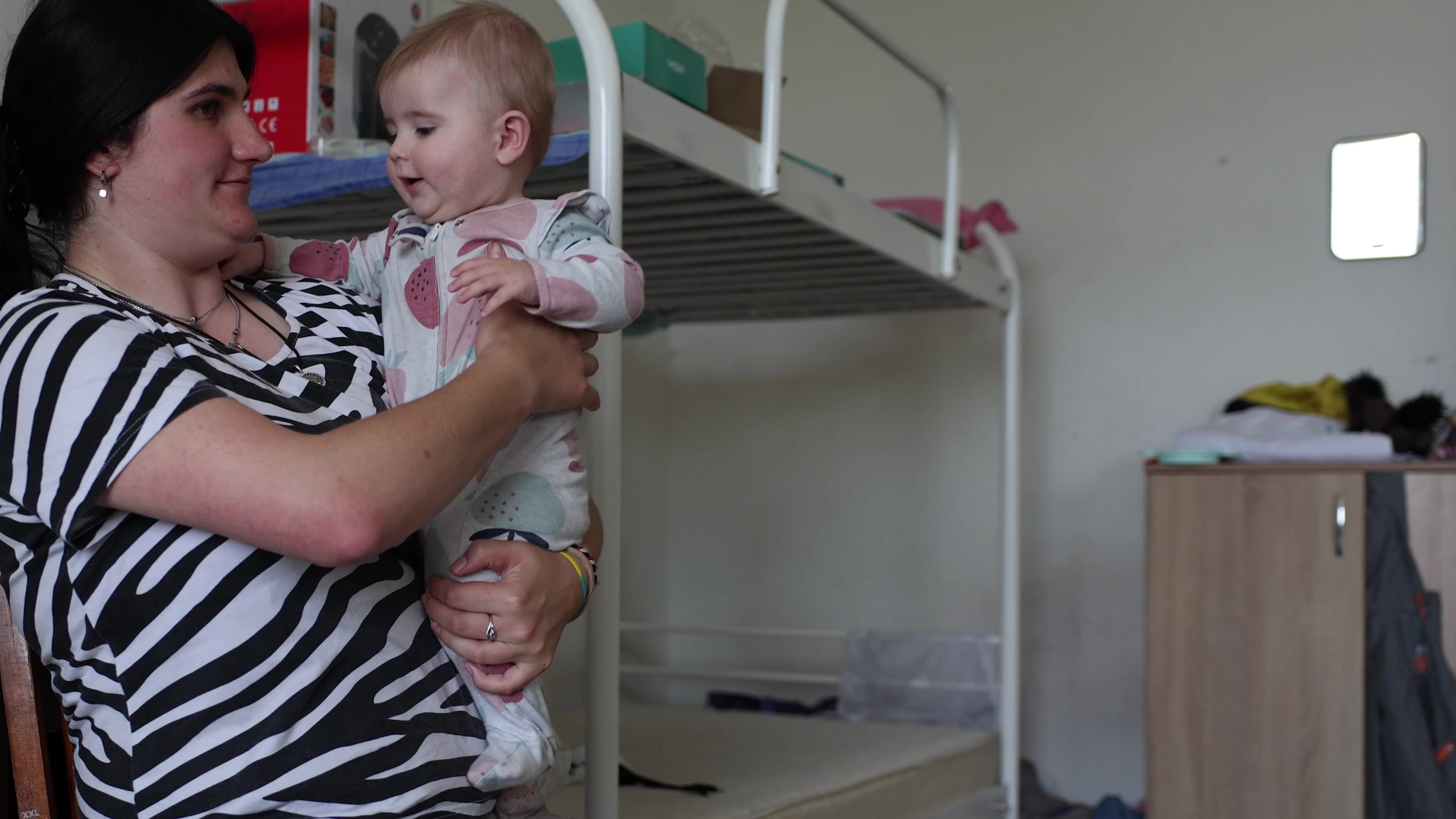
Dasha clutched her pregnant stomach with one hand and her son's hand with the other as they fled the only home they'd ever known, the distant echoes of war reverberating in their ears. The once familiar streets of her village became a battleground, forcing Dasha to embark on a perilous journey to a shelter in Dnipro. Her story is one of survival and strength, emblematic of the countless families uprooted by the conflict in Ukraine.
Since the beginning of the war in Ukraine, the number of internally displaced people (IDPs) has surged dramatically. By December 2023, an estimated 3.7 million individuals were living in internal displacement within Ukraine, with 80 percent of them enduring this reality for over a year. Dasha and her family are one of the many individuals behind those numbers.
A Life Shattered by War

A Life Shattered by War
"Everything started on February 24th, 2022. There were shootings far away from us; we heard them, but we didn’t think it would come closer," recalls Dasha. But the war did come closer, much closer. Within two weeks, soldiers stormed her village. The chaos that followed was unimaginable. Food became scarce, vital documents were destroyed, and storehouses were raided.
Amid this turmoil, Dasha gave birth to her son, now two years old. "I had preterm birth. They brought me to the nearest hospital, but it wasn't a maternity hospital anymore; it was occupied," she recounts. The conditions were dire, and she had to search for humanitarian aid to feed her newborn.
"There were shootings far away from us; we heard them, but we didn’t think it would come closer."
Surviving Under Occupation
Life under occupation was fraught with danger and uncertainty. "Some people started to steal from abandoned houses; others tried to communicate with the occupiers to get basic necessities," Dasha explains. Her own family was torn apart by the war. "My mom is still in our partially destroyed house," she says, her voice heavy with emotion.
When Ukrainian forces began to reclaim the village, the fighting intensified. The relentless bombardment left her village, Kopanky, in ruins. "My village is destroyed. Kopanky does not exist anymore."
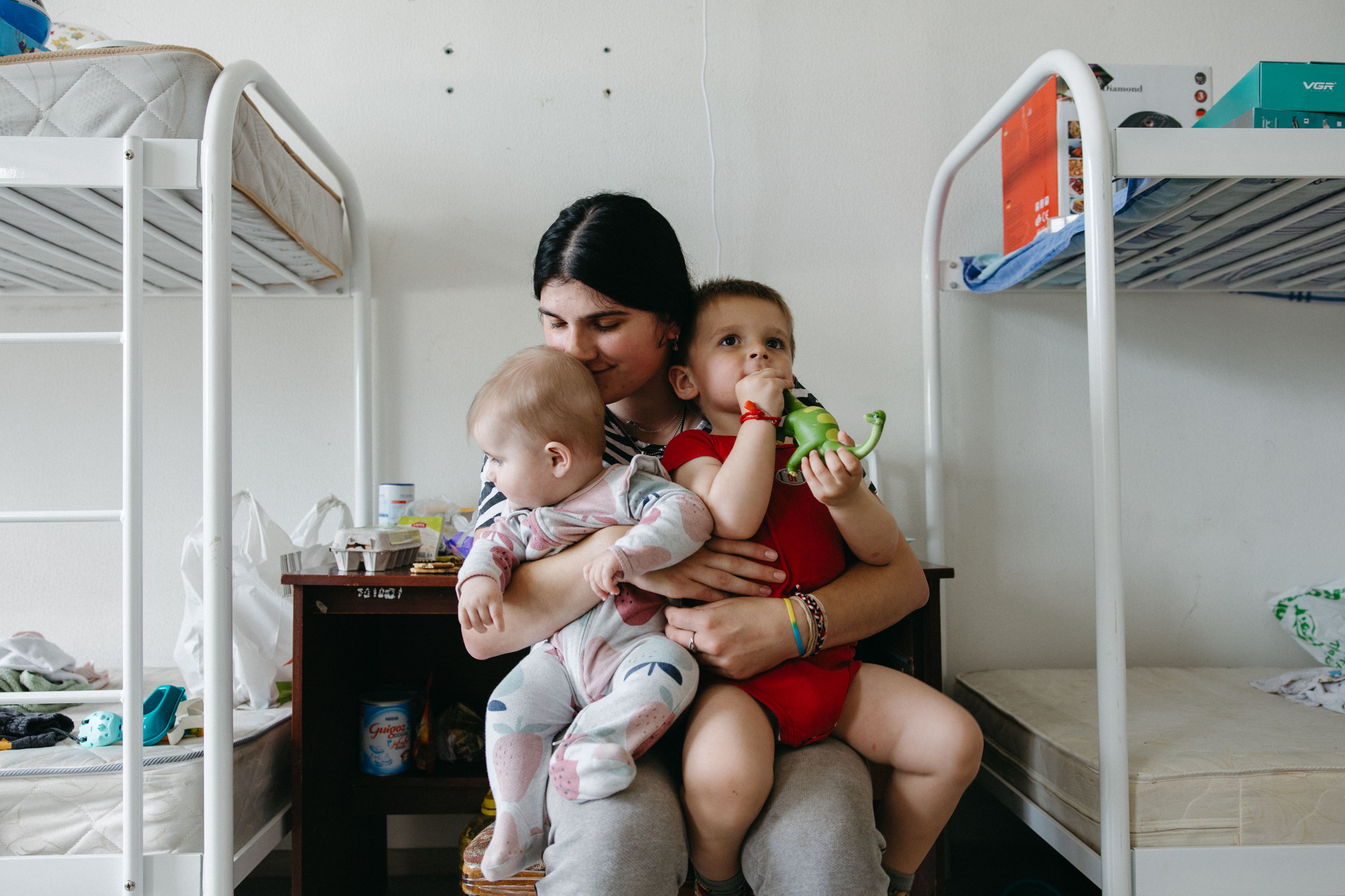
A Struggle for Normalcy
Despite the devastation from the occupation, Dasha tried to hold on to hope. "During the months after the occupation, I didn’t care that my house was damaged; I would pay to repair it somehow, just to stay in our house," she says. But the situation only worsened. Her partner, one of the Ukrainian soldiers that helped reclaim her village and the father of her daughter, went missing, leaving her to care for her children alone. "I became pregnant again. We were hoping that everything would be okay, but everything went in another direction," she laments.
"I became pregnant again. We were hoping that everything would be okay, but everything went in another direction."
In October 2022, with no home to return to and an increase in attacks, Dasha made the heart-wrenching decision to leave. "There was no space in the car that was evacuating me for my mother. So, I made the difficult decision to leave for my children. I took three bags, my child, and left. My daughter was born in Dnipro."
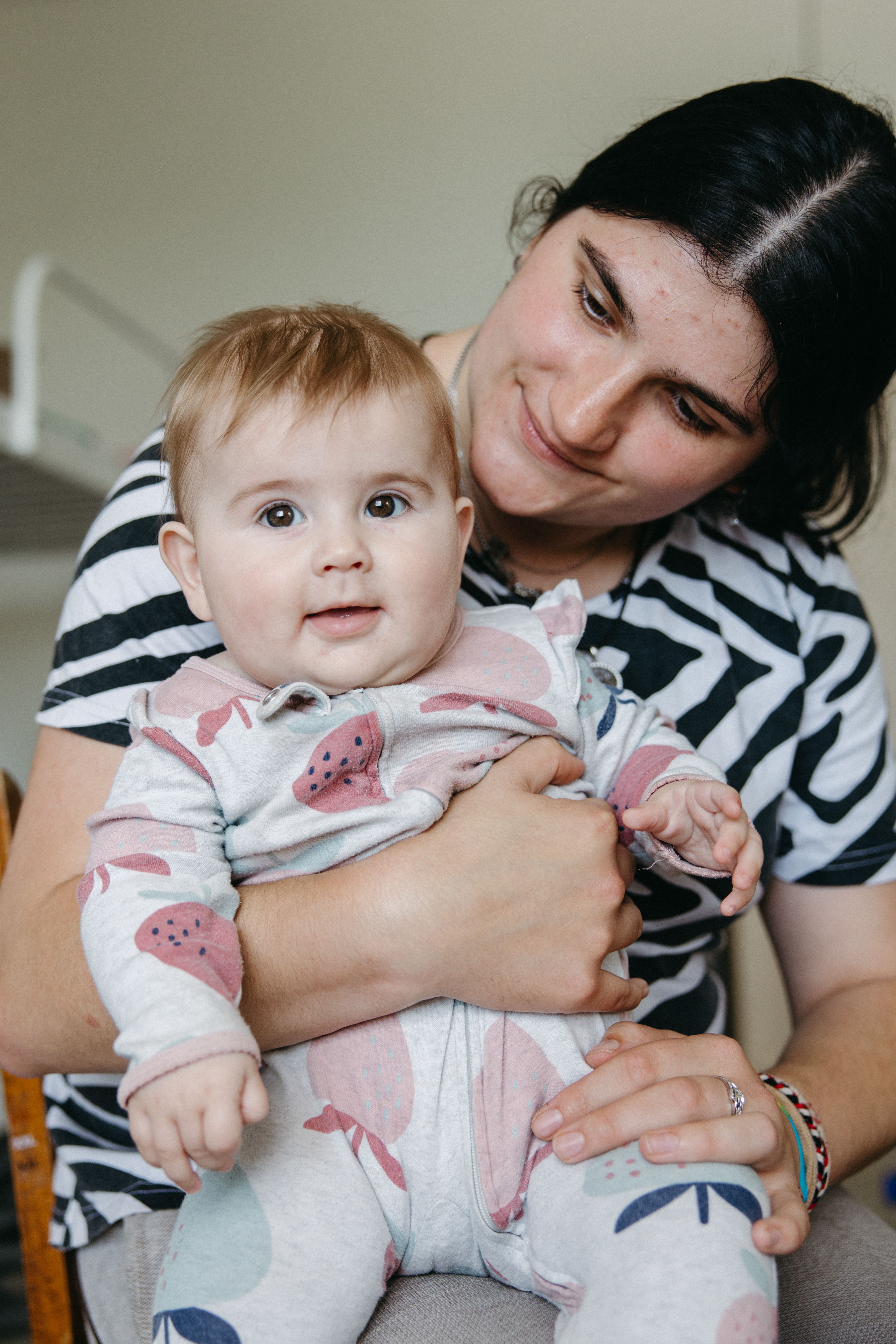
Dasha holding her daughter that was born in Dnipro.
Dasha holding her daughter that was born in Dnipro.

Dasha's husband and the father of her daughter is still missing.
Dasha's husband and the father of her daughter is still missing.
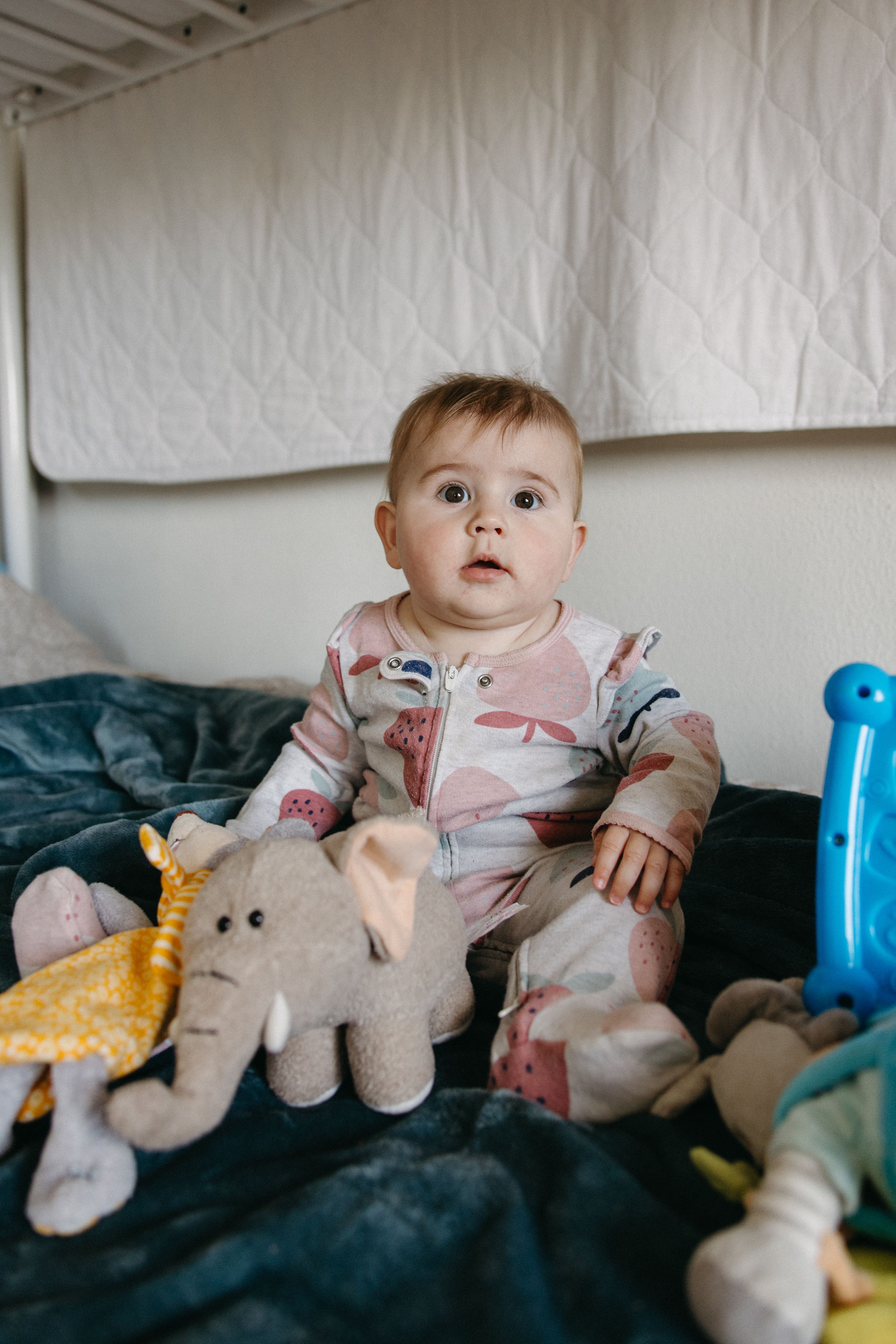
Children face the most unimaginable terrors of war, which contribute to their mental health.
Children face the most unimaginable terrors of war, which contribute to their mental health.
Challenges in a New Life
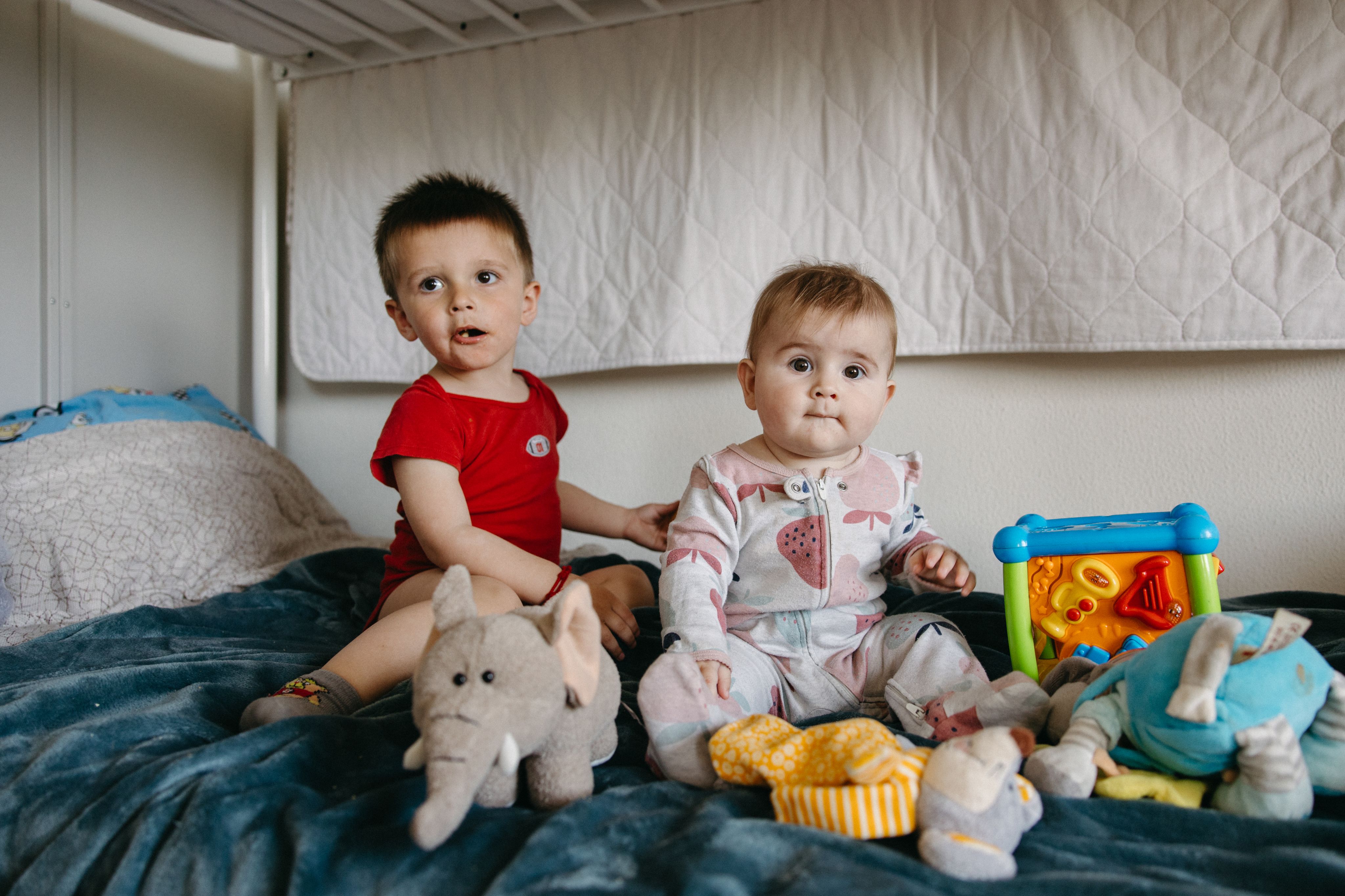
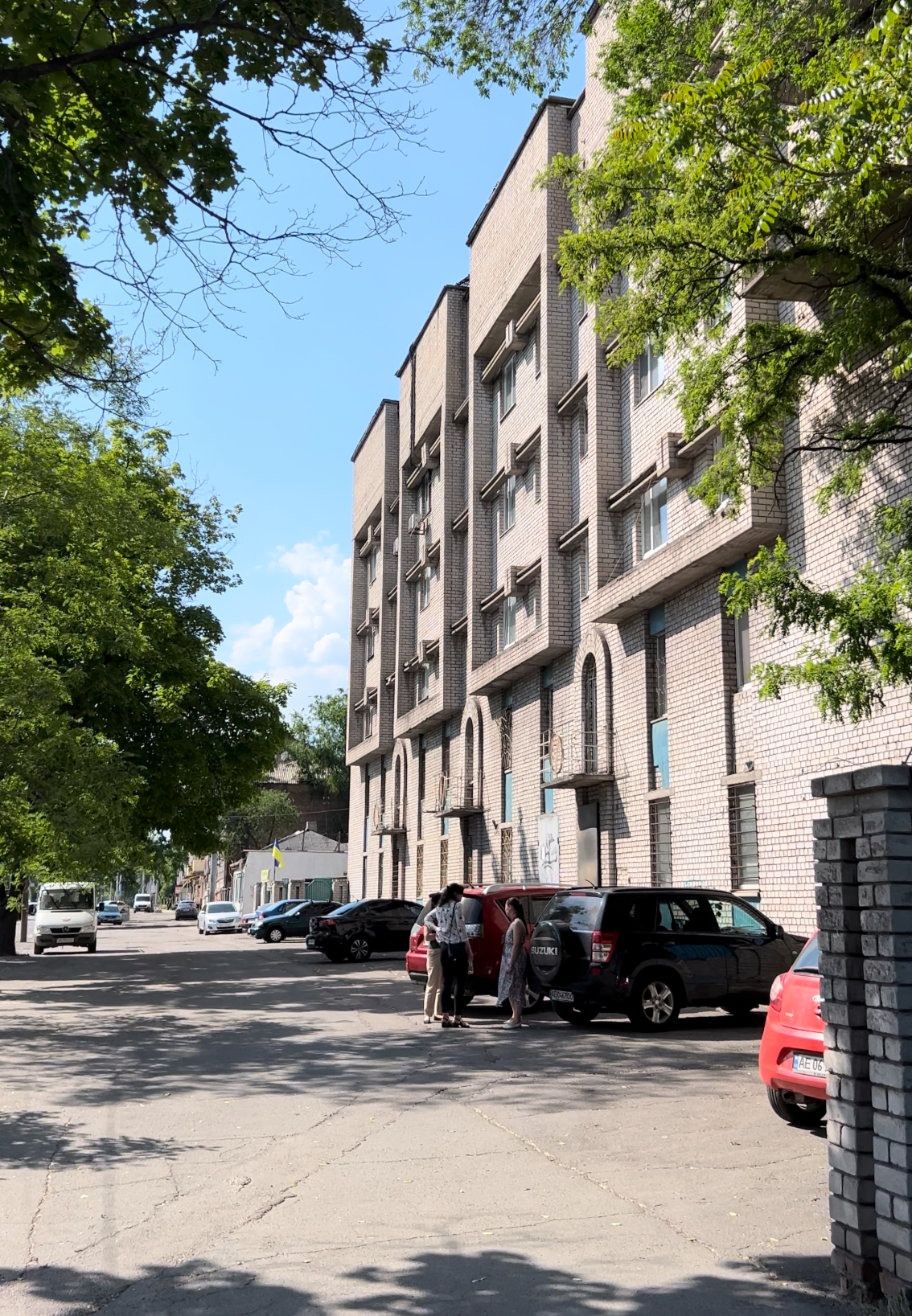
Outside of the shelter Dasha and her children are currently living in.
Outside of the shelter Dasha and her children are currently living in.
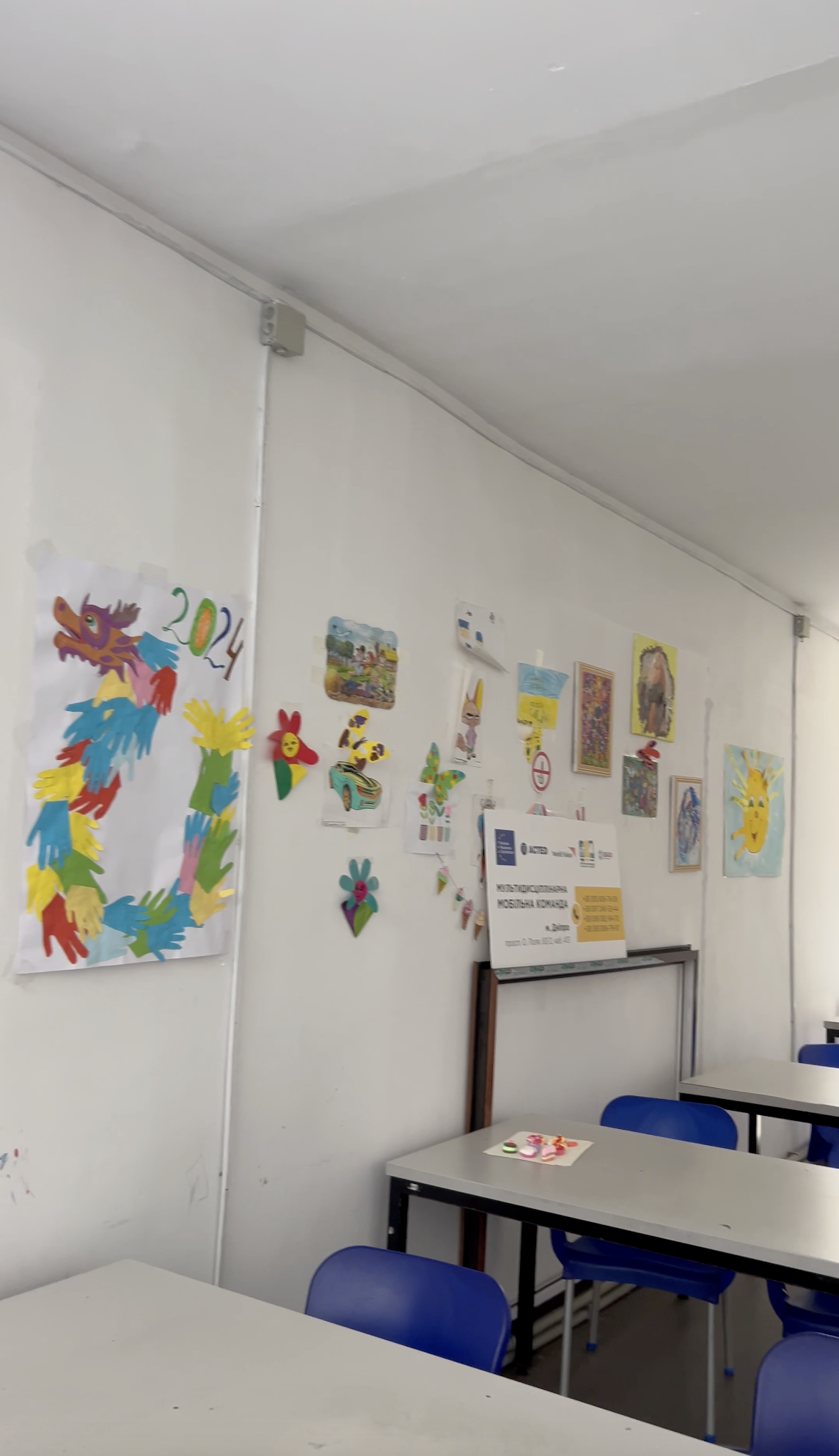
Inside the shelter there is a common area designed to create a safe learning space for children.
Inside the shelter there is a common area designed to create a safe learning space for children.
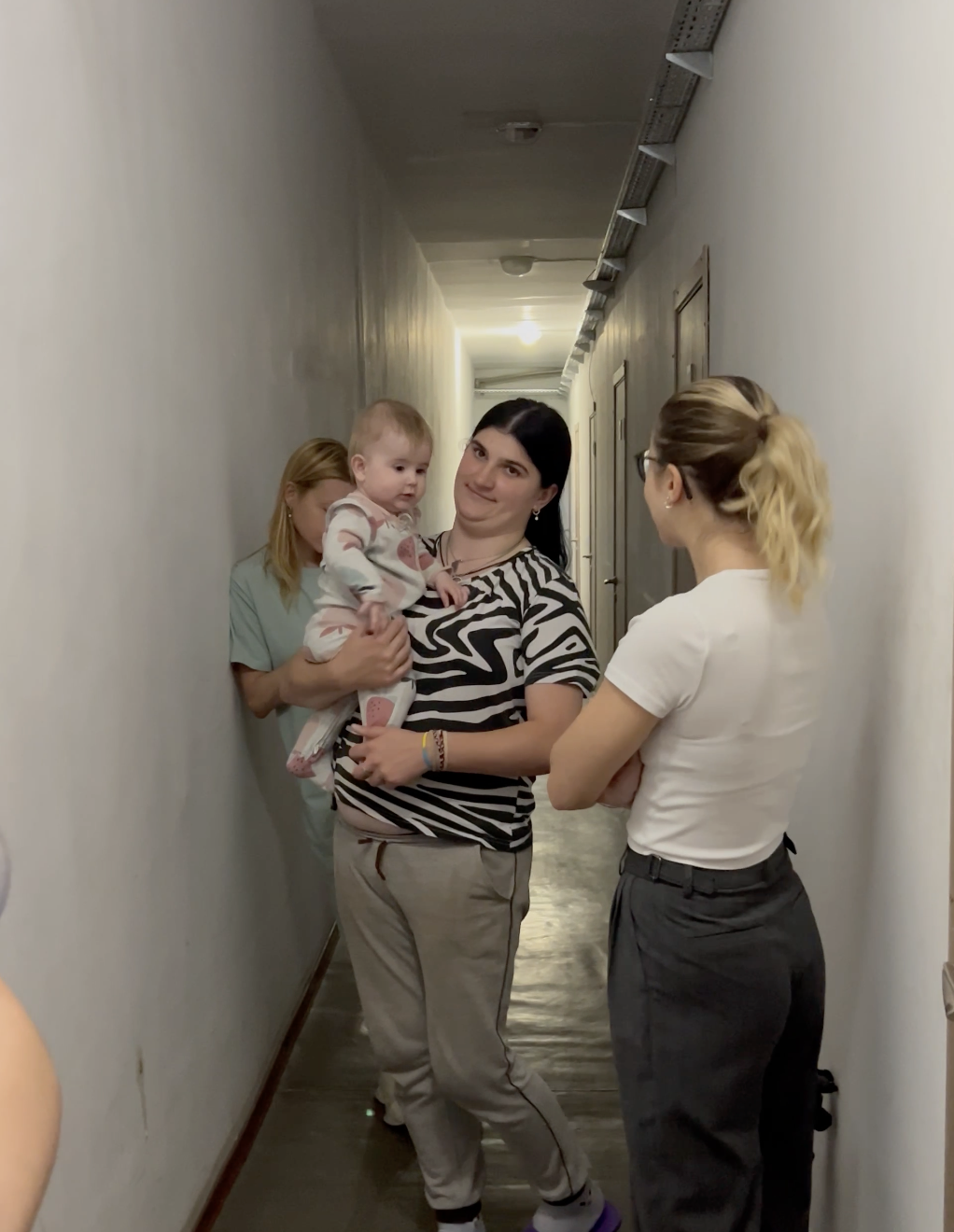
When the team at World Vision visited Dasha, an explosion went off in the distance. Everyone ran to the nearest shelter, which was a corridor tucked away between two solid walls. This is a daily occurrence for mothers like Dasha in Dnipro, Ukraine.
When the team at World Vision visited Dasha, an explosion went off in the distance. Everyone ran to the nearest shelter, which was a corridor tucked away between two solid walls. This is a daily occurrence for mothers like Dasha in Dnipro, Ukraine.
Challenges in a New Life
Life in the shelter in Dnipro brought its own set of challenges. The first center Dasha stayed in was overcrowded and primarily housed victims of domestic violence, creating a tense environment. "There was much pressure. I couldn’t sleep for a whole month and had to be put on antidepressants."
Despite receiving some support as an internally displaced person (IDP) and a single mother, Dasha's future remained uncertain. "I receive 8000 UAH ($197 US dollars) per month, which helps us survive somehow. But I don’t know for how long I will get this assistance. If one of the children gets sick, the hospital expenses will be 5000-6000 UAH at least."
One day, without explanation and warning, the center approached Dasha and asked her to leave. She found refuge in another shelter, supported by World Vision and its partners, where she now receives daily child support. Although there are still challenges, this newfound support system not only helps her care for her children but offers a glimmer of hope amid the turmoil.
Video tour of Dasha's temporary home.
Video tour of Dasha's temporary home.
Resilience Amid Adversity
Through all this, Dasha's resilience shines through. "I have no right for weakness. I am alone; there is nobody to help me. There are two of them, and there is only me. No matter how hard it is, I keep holding on because I have to take care of them."
"I have no right for weakness. I am alone; there is nobody to help me. There are two of them, and there is only me. No matter how hard it is, I keep holding on because I have to take care of them."
Dasha's story is a powerful testament to the strength and resilience of mothers in the face of unimaginable hardship. As the war in Ukraine continues to displace millions, her journey underscores the urgent need for humanitarian assistance and the enduring hope for a better future.
World Vision in Ukraine
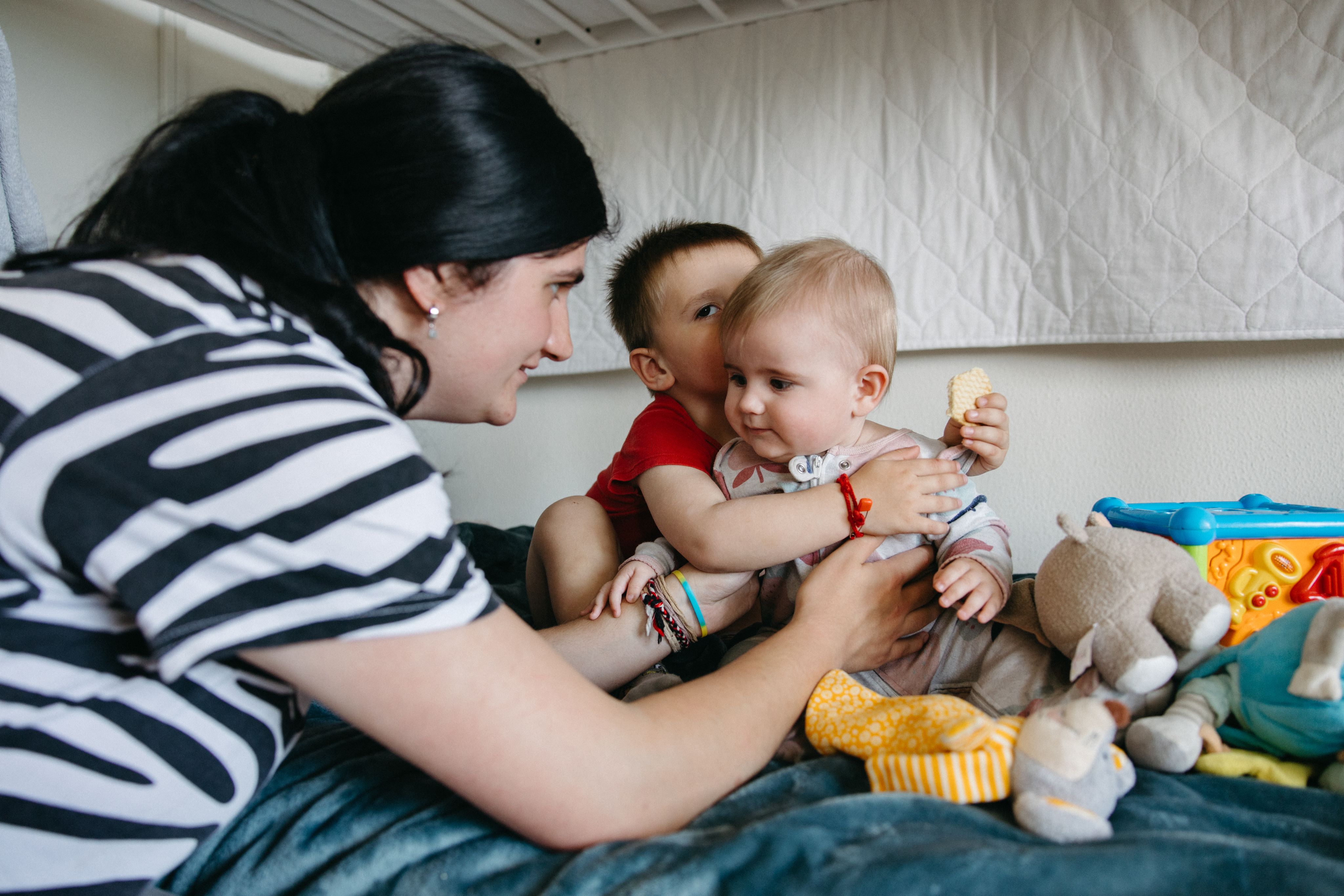
Mobile Clinics in Dnipro, Ukraine
Dasha lives in the collective center where the Health Right mobile team, World Vision’s local partner, goes once a month to offer legal, social, and psychological support. The multidisciplinary mobile team for internally displaced families is made up of a psychologist, a lawyer, and a social worker.
Funded by USAID’s Bureau for Humanitarian Assistance, ACTED Ukraine and the Ukraine Response Consortium, they assist around thirty families per day, covering 22 collective centers in Dnipro each month.
Apart from providing legal and psychological support, the mobile team offers packages that include essentials like food and hygiene items. Under the BHA-funded project, 12 mobile teams cover collective centers and schools across the whole country.
Dasha and her daughter with one of the mobile health clinic partners.
Dasha and her daughter with one of the mobile health clinic partners.
World Vision’s work in Eastern Europe
Our teams have been present in Eastern Europe for decades responding to natural disasters, conflict, refugee movements, economic hardships and the educational, physical and emotional needs of extremely vulnerable children.
The ongoing war in Ukraine impacted the lives of 14.6 million people according to UNOCHA's 2024 Humanitarian Needs Overview, at least 3.3 million people live in frontline communities, including those in the occupied territories. An estimated 4 million Ukrainians are internally displaced, over 100,000 live in collective sites.
Two years on, World Vision's humanitarian response to the crisis has spanned four countries working with 28 partners: Ukraine, Romania, Moldova and Georgia, providing for the needs of over 1.6 million people, almost half of them are children. These include the internally displaced, refugees and host families.
A new humanitarian player in Ukraine, World Vision works with national and international partners across 24 regions assisting 1,020,038 internally displaced coming from the frontlines.
How can you help children and families impacted by this crisis?
Donate to help children and families forcibly displaced by the crisis in Ukraine.
Pray for peace to be restored quickly and that children and families will be protected from harm.
Advocate and add your voice to call for peace in Ukraine and protection for affected children and their families.